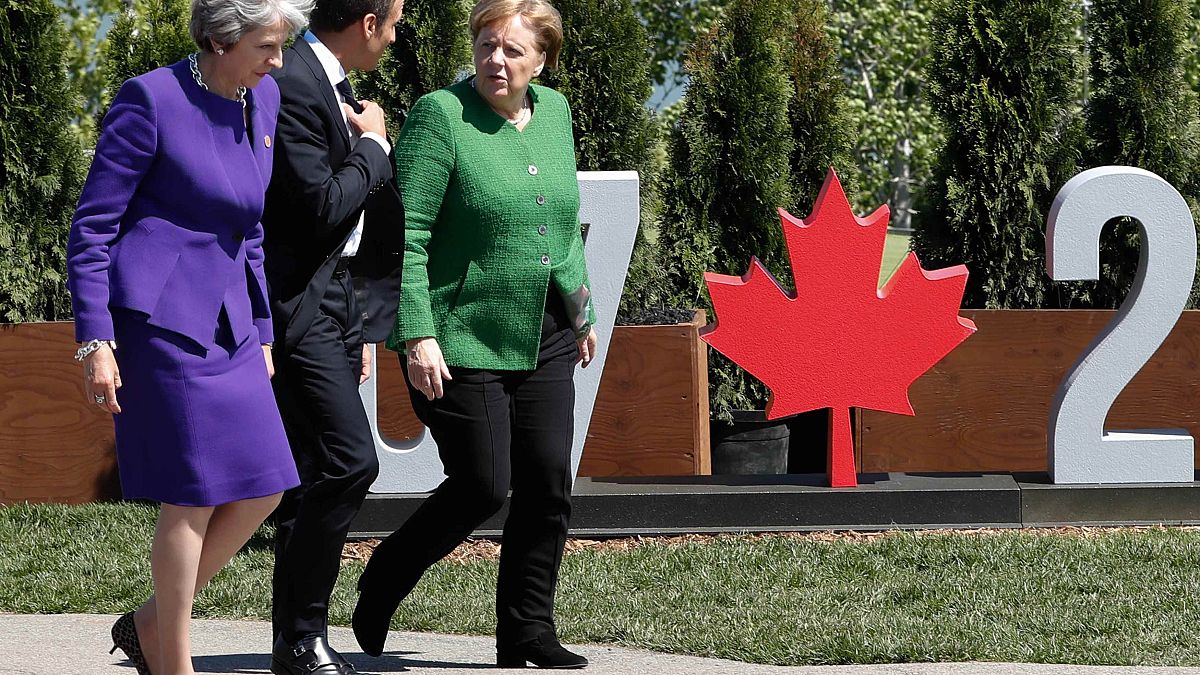It comes in the wake of a series of attacks — including the poisoning of Sergei Skripal — blamed on Russia.
Leaders of G7 countries have agreed the creation of a rapid response unit to combat hostile state activity, warning that “interference by Russia and other foreign states” would not be tolerated.
The UK, who spearheaded the initiative, said a more coordinated approach was needed in the wake of a series of aggressive behaviour attributed to Russia, including the attempted murder of former Russian spy Sergei Skripal in Salisbury and the 2017 ‘NotPetya’ cyber-attack.
The ransomware which was initially targeted at Ukraine, spread around the world impacting major multinationals. Russia denies being behind either of these attacks.
“There is no doubt that foreign interference in our democratic institutions and processes, and other forms of hostile activity, pose a strategic threat to our shared values and interests,” British Prime Minister Theresa May said at the G7 Summit on Saturday.
“Today’s announcement shows that the G7 will not tolerate foreign interference in any one of our democracies, that we are getting organised, and that we will take coordinated action against those who seek to violate the rules-based international system.
The agreement is based on greater intelligence sharing between the countries of the G7 group of industrialised nations — Canada, France, Germany, Italy, Japan, UK and the US — and aims to identify, prevent and respond to hostile state activity including cyber-attacks. It also calls for co-ordinated attribution of hostile activity and the improvement of physical and digital infrastructure.
May also lobbied for additional measures including measures to stop illicit money flows undermining democracies and more information-sharing so that Russians expelled from one country do not simply enter another.
The G7 appears to be splintering on the best way to tackle alleged Russian aggression.
On Friday, US President Donald Trump called for Russia to be readmitted as a member of the G7, which was supported by Italy’s new Prime Minister, Giuseppe Conte.
The country was expelled from what was then called the G8 after it annexed Crimea.
